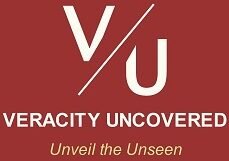Who pays closing costs
In order to cover the transfer of ownership at closing, “closing costs” are common expenses that are paid in addition to the property’s sale price. Closing costs typically make up “2% to 6%” of the purchase price and can vary ‘by state’ and occasionally by county. Closing costs may vary from “$4,000 to $12,000” if the purchase price is $200,000.
The “Closing Disclosure” is structured to provide a clear breakdown of costs, distinguishing between loan-specific closing costs (such as origination fees and appraisal fees) and other closing costs (like title insurance and recording fees).
Seller Closing Costs -
Seller “closing costs” typically consist of the following:
- Any assessments or bonds (according to contract);
- Escrow fees for seller’s side;
- Fee for preparing the Deed’s documents;
- Home warranty (according to contract);
- Homeowners’ association transfer fee (according to contract);
- Notary fees for seller, executed documents;
- Outstanding dues to the homeowners’ association;
- Payoff of all loans in seller’s name (according to contract);
- Payoff of “prepayment penalties, statement costs, reconveyance fees, and interest accruing to the lender”;
- Real estate commission to the real estate agents;
- Recording fees to remove all “records” against the seller;
- “Tax liens, contractor liens, judgments, and/or other liens/claims” against the seller;
- Tax proration (for any taxes due at the time of ‘title’ transfer); and
- Transfer/Conveyance tax (according to contract);
Seller “closing costs” can be negotiated by the seller with the buyer in order to share some of the costs with the buyer. Negotiable expenses can include “home warranty, homeowner’s association transfer fee, real estate commission, etc.”
Buyer Closing Costs -
Buyer “closing costs” typically consist of the following, also you could notice some add-on “closing costs” that are specific to your area:
- Any fees associated with preparing ‘documentation’ (such as disclosure statements, title documents, loan applications, etc.);
- Appraisal fee (part of lender expenses);
- Attorney’s or escrow fees (yours and your lender’s, if applicable);
- “Change of Records” or ‘Assumption’ fees associated with taking over an existing loan;
- Credit report fee (part of lender expenses);
- Initial payment to the escrow account for “upcoming insurance and real estate taxes,” if applicable;
- Interest (on new loan from “the date of funding” to “30 days prior to the first monthly installment”);
- Loan discount points (part of lender expenses);
- Loan origination fee (covers lender’s administrative expenses);
- Notary fees for buyer, executed documents;
- Tax proration (from date of acquisition Homeowner’s transfer fee);
- Homeowner’s insurance policy (and, if relevant, the fire and flood insurance);
- Recording fees for all documents in buyer’s name;
- Survey fee;
- Termite Inspection (according to contract);
- The “FHA Mortgage Insurance Premium (MIP), VA Loan Funding Fee, or Private Mortgage Insurance Premium (PMI),” depending on applicability and what the lender requires; and
- Title insurance (yours and your lender’s);
Buyer “closing costs” can be negotiated by the buyer with the seller in order to share some of the costs with the seller. Negotiable expenses can include “owner’s title insurance, loan origination fee, survey fee, appraisal fee, etc.”
Sellers often use credits (“Seller credits”) as a strategy to make their ‘property’ more appealing. By “covering part of the buyer’s closing costs” or offering repair credits, they can help ease the buyer’s upfront expenses.
Federal Housing Finance Agency (FHFA) -
Closing costs can be a major barrier for many potential homeowners and are usually ‘3 to 6 percent’ of the loan amount. In addition to a down payment, borrowers may require an extra “$6,000 to $12,000” for a $200,000 mortgage in order to close on a house.
On some refinance loans with modest risks of ‘title’ defects, FHFA recently approved a pilot program run by ‘Fannie Mae’ that would exempt lenders from obtaining “title insurance or AOLs.” Given that the property’s title would have been confirmed at the time of the original acquisition. When made available, this pilot initiative might reduce closing costs ‘for homeowners looking to refinance’ by “$500 to $1,500.”
Home equity loans typically have lower closing costs than “cash-out refinances” for the borrower. This difference is because cash-out refinances involve replacing the existing mortgage with a new loan, which requires ‘more extensive underwriting’ and often higher fees.
A “down payment and closing costs” can be paid ‘for entirely or in part’ from a variety of sources, according to Fannie Mae. ‘A gift from your family, a grant from a company or nonprofit, community seconds, or sweat equity’ are some of the sources/methods that can assist you with paying for the “down payment and closing costs.”
That’s all friends.
Ads Section

